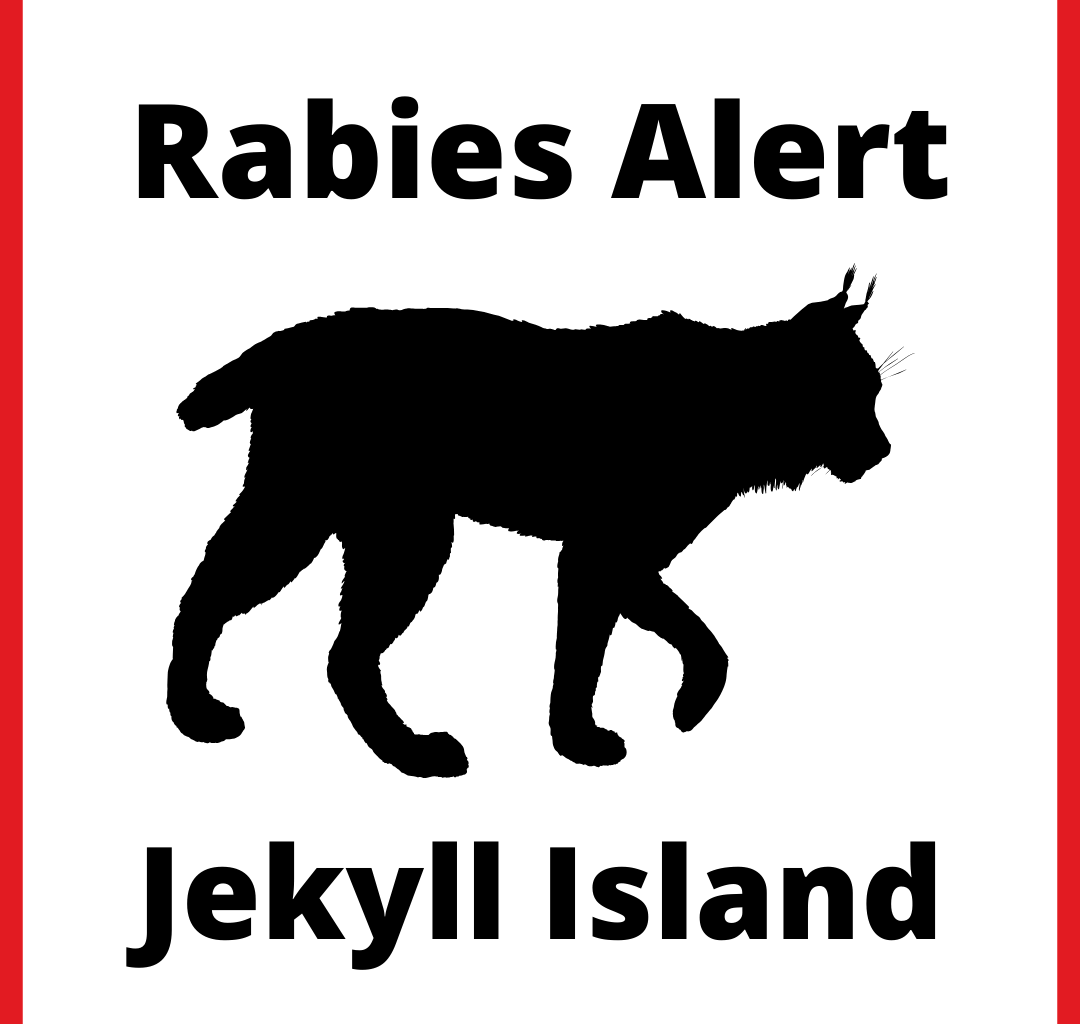The Glynn County Health Department is alerting residents and visitors that a bobcat on Jekyll Island has tested positive for rabies. The bobcat attacked an individual near the intersection of Shell Road and Beachview Drive on November 23rd. The Glynn County Health Department was notified and transported the bobcat for testing at the public health laboratory in Waycross where the animal tested positive for the disease. The individual who was attacked has been advised to seek follow-up medical care for rabies exposure.
This is an important reminder for residents and visitors to avoid contact with wild animals when possible, and for pet owners to keep their animals up to date on rabies vaccinations.
Several species of wild animals in coastal Georgia – including raccoons, foxes, and bats – can carry rabies. Feral cats and dogs can carry rabies as well. Rabies is a potentially deadly virus that is primarily spread by infected animals. The Glynn County Health Department Environmental Health office has these tips to protect you and your family from rabies:
Avoid contact with animals you don’t know.
Make sure your pets receive the proper immunizations. Dogs and cats should get rabies vaccines after 12 weeks of age, followed by a booster shot within one year and vaccination every 1-3 years depending on veterinary recommendation and vaccine used.
Do not handle, feed, or unintentionally attract wild animals with open garbage cans or by leaving pet food out at night.
Never adopt wild animals or bring them into your home. Do not try to nurse sick animals to health. Call animal control or a properly licensed animal rescue agency for assistance.
Teach children to never handle unfamiliar animals, wild or domestic, even if they appear friendly. “Love your own, leave other animals alone” is a good principle for children to learn.
Symptoms of rabies in animals include a change in behavior, biting, aggression, showing no fear of natural enemies (such as humans), foaming at the mouth, and paralysis. If an animal ever bites you, seek medical care immediately and contact Glynn County Animal Control at 912-554-7500 and the Glynn County Health Department Environmental Health office at 912-279-2940.
